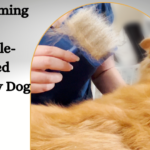
[ad_1]
The newest Wetland Bird Survey Report (WeBS) printed in the present day exhibits that for some species of waterbirds, crossing the North Sea for a winter vacation within the UK could not occur each winter.
As elements of northern Europe start to expertise hotter and wetter winters extra frequently, species that historically crossed the North Sea in quest of milder winters within the UK are actually spending their winters a lot additional north and east than they had been, and none extra so than the Scaup. Scaup is a diving duck, much like the extra acquainted freshwater Tufted Duck, however present in shallow marine waters or very massive freshwater lakes.
Britain and Ireland had been an necessary wintering space for this northern-breeding seaduck, however over the last 50 years overwinter numbers have been falling.
According to the most recent annual WeBS report the variety of Scaup wintering within the UK has declined by three quarters for the reason that peak within the 1973/74 winter. At the identical time, Scaup counts within the winter have elevated in northern and jap Europe. However, this will not be to the species’ benefit within the long-run, as Scaup are being misplaced in fishermen’s nets and struggling to seek out meals in areas which are being overfished across the Baltic Sea.

Greater Scaup, copyright Glyn Sellors, from the surfbirds galleries
With the winter of 2019/20 being the warmest on report in Europe, a part of an ongoing warming pattern, it’s not simply Scaup which are choosing short-haul choices nearer their breeding grounds. Goldeneye and Bewick’s Swans from the northwest European breeding inhabitants are additionally remaining on the opposite aspect of the North Sea in rising numbers through the winter months – these species declined by 58% and 88% respectively between the winters of 1993/94 and 2018/19. Surprisingly maybe, given its ubiquity through the breeding season, the variety of Coots that come right here for winter has additionally fallen, down by 15% over the identical interval.
Results from the International Waterbird Census and International Swan Census, which WeBS feeds into for the UK, give the larger image for the inhabitants declines being seen right here. Whereas the European populations of Coot and Goldeneye seem like steady total and the noticed adjustments are on account of redistribution of wintering areas, the breeding populations of Scaup and Bewick’s Swan have declined, in addition to experiencing adjustments of their winter distribution.
In Northern Ireland, Scaup has fallen by 60% between 1993/94 and 2018/19, though Lough Neagh stays the wintering stronghold within the UK. Goldeneye has declined by 89% and for the Bewick’s Swan Northern Ireland is not a winter vacation spot, with no birds being recorded throughout WeBS Counts for over ten years.
Following the sharp decline within the late Seventies, Scotland has seen its overwintering Scaup numbers additional fall by 22% between 1993/94 and 2018/19. Goldeneye and Coot each fell by 38% over the identical interval.
In Wales between 1993/94 and 2018/19 Scaup has fallen by 77%, Goldeneye by 43% and its wintering inhabitants of Bewick’s Swans fell by 90%.
Teresa Frost, WeBS Manager on the BTO, stated “The massive drop in Scaup in Scotland in the Seventies was linked to a discount of waste grain from whisky distilleries ending up in estuaries, however the continued decline since then is pushed by milder winters in the Baltic Sea – and that’s affecting plenty of species. But we’re lucky to nonetheless have many tons of of 1000’s of waterbirds visiting the UK in winter, even when the numbers usually are not fairly what they was for some species, and we’re grateful to the various volunteers who depend them for us and make it potential to grasp what’s altering.”
Simon Wotton, Senior Conservation Scientist on the Royal Society for the Protection of Birds (RSPB), stated, “Whilst the decline of some wintering waterbirds right here within the UK means sure species usually are not migrating as far, there’s concern over the place they are actually spending most of their time. Wetlands throughout Europe are important for hundreds of thousands of waterbirds yearly and supply them with a much-needed residence by winter, however not all are created equal. Many of Europe’s wetlands have been drained, exploited and a few are with out safety altogether. Ensuring these areas are designated and guarded appropriately will turn out to be much more crucial in safeguarding the continuing survival of a lot of our migrating waterbirds.”
Colette Hall, Senior Research Officer from the Wildfowl & Wetlands Trust (WWT), stated “Scaup and Bewick’s Swans altering migration is a wonderful instance of why waterbird conservation is required at a global scale. Not solely is it important to perceive how distributions are altering amongst these species on account of local weather change, it’s also actually necessary to make sure that each the brand new areas the birds are utilizing, and the outdated ones that they could nonetheless want in harsh winters, are successfully protected. Whilst 1000’s of waterbirds can discover a safe-haven at WWT and RSPB reserves within the UK, every of the WeBS accomplice organisations proceed to work with worldwide colleagues to assist and interact within the monitoring, analysis and motion wanted to make sure that species and habitats are maintained and guarded throughout the European flyways and past.”
Source www.surfbirds.com






